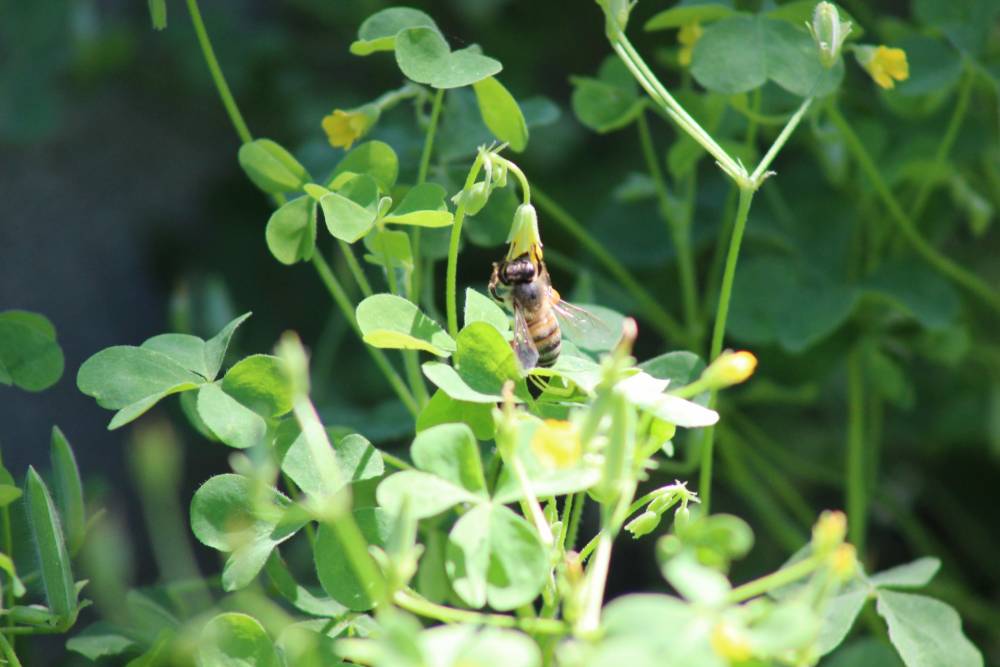
An Atlanta-based effort to provide and restore needed habitat for butterflies, bees and other pollinators is expanding statewide.
Previously known as the Greater Atlanta Pollinator Partnership, the program has broadened to become the Georgia Pollinator Partnership (GAPP).
GAPP’s mission is to create and restore pollinator habitats across Georgia for butterflies, bees, moths, hummingbirds and other animals by informing people about declines in many pollinator species and promoting pesticide-free, native plantings as a solution. The program began as a collaboration between the USDA Forest Service, Atlanta Botanical Garden, Georgia Highlands College and National Wildlife Federation.
Started in 2009 as the Greater Atlanta Pollinator Partnership, GAPP targeted the rapid and significant changes in the landscape caused by the Atlanta housing boom of the 1990s and early 2000s. These changes contributed to habitat loss, one of the leading causes of native pollinator declines globally.
“The Forest Service is proud to have taken a leadership role in initiating the Greater Atlanta Pollinator Partnership and we are excited to see this effort expand statewide,” said Dennis Krusac, regional pollinator conservation coordinator for the Forest Service. “This has been an outstanding partnership for more than a decade and it will only get better as we expand the scale of this important conservation effort.”
This year, the Georgia Department of Natural Resources joined the partnership.
“Georgia DNR is eager to promote this initiative alongside the Forest Service, Atlanta Botanical Garden and other conservation organizations,” said Anna Yellin, a wildlife biologist with the agency’s Wildlife Resources Division. “This collaboration shows how even small backyard habitats for pollinators can have a positive impact on the environment.”
Georgians statewide are encouraged to become part of the network by registering their pollinator gardens through the GAPP website (gapp.org). The information collected will include habitat, pollinator and plant types, as well as location, garden size, primary flowering season and more. The data populates an interactive map, allowing partners within GAPP to better track the types of pollinator resources available across Georgia.
“We are very excited to see this partnership grow and produce a new map mirroring our efforts to track pollinator gardens and habitats,” said Lila Uzzell, field biologist and conservation assistant with the Atlanta Botanical Garden. “We hope this updated application will provide more useful data and information on pollinator habitats for our partners and the general public across Georgia.”

1 Comment
Leave a Reply
Cancel reply
Leave a Reply

Bulloch Public Safety
7/14/2025 Booking Report for Bulloch County

Chattooga Local Government
Congresswoman Marjorie Taylor Greene Introduces Bill to Eliminate Capital Gains Tax on Home Sales

Georgia News
‘Operation Southern Slow Down’ Starts Today

Bulloch Public Safety
06/23/2025 Booking Report for Bulloch County

Bulloch Public Safety
06/30/2025 Booking Report for Bulloch County

Bulloch Public Safety
06/16/2025 Booking Report for Bulloch County

Bulloch Public Safety
06/19/2025 Booking Report for Bulloch County

Bulloch Public Safety
7/09/2025 Booking Report for Bulloch County







thompsons garden
August 27, 2020 at 4:34 pm
we specialize in native plants at our nursery !!we have been planting native plants for 22 years !!